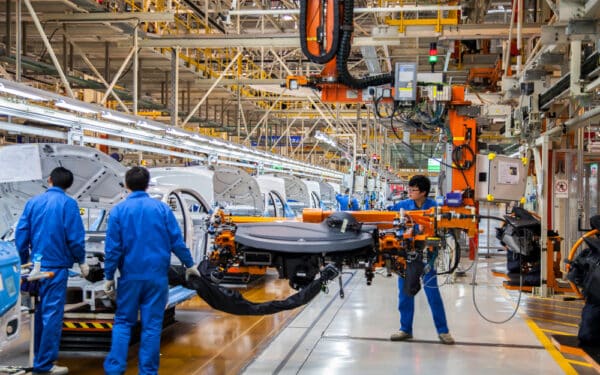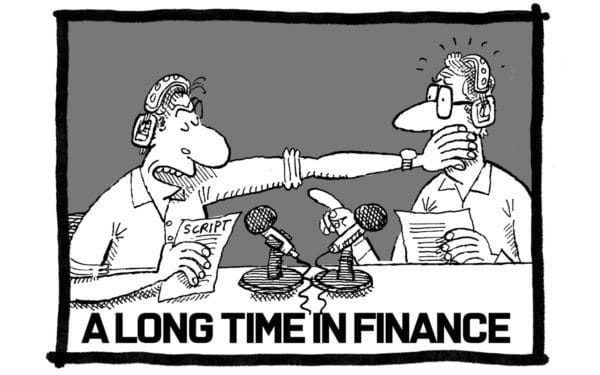There is a disturbing rhetorical trend among pro-market politicians wrestling with the global energy crisis. More and more, they are presenting their supporters with a false dichotomy. A choice between a colder, darker and poorer net zero future, or roaring growth, plummeting energy bills and greater prosperity through fossil fuels. This trend is epitomised by Liz Truss advocating more North Sea oil exploration, Lord Frost’s full-throated defence of fracking, and the appointment of climate change skeptic Jacob Rees-Mogg as the minister responsible for our green future. Fortunately for those who believe in capitalism and saving the planet there is no right-wing case for scrapping net zero.
At the centre of the “economic liberal” argument for refocusing on fossil fuels is cost. A lack of domestic energy supply has suppressed growth and put millions at risk of energy poverty as the price of natural gas has soared.
At first glance it follows that we should be fracking every last drop of the shale gas sitting untapped beneath our feet. Not to do so would be to place the demands of nutty groups like Extinction Rebellion over sensible economic policy, right?
Wrong. In fact, after a decade of plummeting costs, renewables are now cheaper than fossil fuels. A new solar plant costs just £40 per megawatt hour while offshore wind is slightly more at £41. Meanwhile, a new gas power station sets us back some £72 per megawatt hour.
Well, you might say, it’s no wonder the price of renewables has fallen when governments spend so much money subsidising them. But that’s hardly a fair argument when you consider how much more major economies have spent lining the pockets of companies extracting fossil fuels. The best explanation for why the price of renewables fell 89% between 2010 and 2022 is the unbridled capacity of the free market to solve problems.
Private enterprise has spotted the coming catastrophe of climate change and has worked to produce better products at lower prices. It is not by government diktat that cheap renewables have arrived, but by the hand of companies like Siemens and Orsted, operating under the profit motive.
Promoting a more expensive source of energy over cheaper and greener alternatives is neither capitalist nor conservative. Fighting to protect outdated methods and unnecessary technologies sounds a lot more like the tactics of the militant left than the market-driven right.
Rejecting green technology is a waste of an opportunity to create jobs and stimulate growth in Britain. The often-stated stat is true: Britain represents just 1% of global emissions. But that doesn’t mean we should spend our time protesting outside the Chinese embassy whilst drilling for fossil fuels like there is no tomorrow. Instead, we should be developing green products and processes that can be exported to more heavily polluting nations. The benefits are obvious, a cleaner and greener world we can all enjoy and increased global power and domestic wealth. Championing net zero would increase our soft power and help us compete on the global stage.
Scrapping net zero plans could also threaten free trade deals, which are another big priority for the right. Many of the nation’s we want to strike agreements with will not want a partner enabling the destruction of the planet. This has been demonstrated by our recent negotiations with New Zealand who refused to put pen to paper until environmental protections had been baked into the agreement.
It is ironic that key Brexiteers like Rees-Mogg and Farage are now among the leading critics of the net zero target. Their actions risk squandering one of the biggest benefits of our departure from the European Union. Just across the water from New Zealand lies another powerful lesson for the right on climate. When the centre right Liberal party of Australia went cold on global warming commitments the left gained power. All of us who are right of centre can agree that’s a bad outcome.
Whether we like it or not, climate change is happening, and its effects are destroying homes and habitats across the world. Instead of wasting time discussing the semantics of a “climate emergency” we should row back against regressives who cling to fossil fuels as the only path forward, and we should construct homes, transport, and renewable energy on a colossal scale whilst enabling the market to carry out vital research and development. To save the world, market liberals must do what we have always done: support capitalism, progress, and sensible regulation. If we do, we will be just fine. To have all the tools in our grasp to deal with this existential crisis and to choose not to would be an unforgivable betrayal not just of future generations but of everything we have ever stood for.
Jack Rowlett is a political commentator with Young Voices UK. His work has appeared in 1828 and AdamahMedia and he has made several appearances on TalkTV.
Write to us with your comments to be considered for publication at letters@reaction.life




